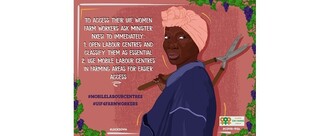- Featured
- Clean air
- Climate justice
- Consumer Rights
- Corporate Accountability
- Data access
- Early Childhood Development
- Economic fairness
- Education
- Electoral fairness
- Environmental justice
- Food justice
- Gender based violence
- Grants/social assistance
- Health
- Housing and infrastructure
- Industry interference
- Land Justice
- LGBTQIA+ rights
- Media/ information access
- Public transport
- Racism
- Reparations
- Safety
- Sanitation
- Service Delivery
- Sexual and Reproductive Rights
- Social justice
- Unemployment
- Womxn's rights/ gender equality
- Workers' rights
- More
-
End Outsourcing at the UCT GSB: Honour the 2015 CommitmentOutsourcing at the University of Cape Town contradicts the values of equity, inclusiveness, and excellence that UCT strives to uphold. Many workers have served UCT for decades—protecting its facilities, caring for its grounds, and ensuring the well-being of students, faculty, and visitors. On 31 December 2024, our Campus Protection Services (CPS) at the Graduate School of Business (GSB) were replaced with an outsourced company, Integrisec. This decision significantly reduced workers’ wages—staff now earn three to four times less than their CPS counterparts—and eliminated key benefits, including medical aid, pension, and fee discounts that UCT offers to insourced employees. Outsourcing not only erodes workers’ livelihoods but also exposes them to the constant threat of job losses whenever contracts are renegotiated. This shift betrays UCT’s commitment to equity and undermines the quality and reputation of our institution. Security staff work tirelessly to safeguard our community, often during nights, weekends, and public holidays, ensuring UCT runs smoothly and efficiently. These staff members are an integral part of the UCT community. Yet outsourcing divides this community, creating a hierarchy where workers are treated as separate from students, faculty, and management. This division reflects the enduring legacy of colonialism, which normalised the marginalisation of black and brown workers. As a public institution committed to social justice, UCT must not perpetuate this marginalisation by prioritising cost savings over fair treatment and dignity for all members of its community. In 2015, under intense student and worker advocacy, UCT publically committed to ending outsourcing and insourcing all critical service staff. That agreement was more than a financial or administrative change; it was a moral and social contract to address the injustices of precarious employment. Reverting to outsourcing not only breaks this commitment but also exacerbates the income inequality that continues to plague South Africa. Under conditions of outsourcing, workers face adverse incentives that lead to a decline in campus upkeep and staff morale. When people are underpaid and feel undervalued, the level of care and investment in their work diminishes. Reports of neglect and decay at UCT’s upper campus illustrate the tangible consequences of sidelining those who keep our institution functional and vibrant. If outsourcing spreads, the entire university community—including the GSB—faces the same fate. This petition matters because UCT’s stance on insourcing sets a precedent for ethical leadership in South Africa’s higher education sector and beyond. Together, let us ensure UCT remains true to its values and to the people who make it exceptional. By signing this petition, you join students, staff, alumni, and concerned citizens in calling on UCT to do the right thing: stand by its workers, uphold its promises, and ensure that our university environment remains a source of pride for all.306 of 400 Signatures
-
Stand in solidarity with striking Mister Sweet Workers ✊🏿Mister Sweet is punishing us for fighting for a living wage. It has locked us out of the factory and is demanding that we accept the three year wage deal it made with two minority sweetheart unions. The company also started reducing the 7% wage offer from the second day of the strike and will keep on reducing it by 0,5% for every week the strike continues until we are faced with a zero percent increase. Instead of negotiating in good faith, the company seeks to further divide workers by training casuals to replace striking workers. Mister Sweet is also making plans to shift production to Manhattan. On 4 September 2024 Premier FMCG applied for an interdict against the strike. The interdict application will be heard on 10 September 2024. We, the 23 below organisations, from six provinces, declare that we are boycotting Mister Sweet products because of the ongoing of workers at Mister Sweet. The lowest paid workers at Mr Sweet are paid in the region of R6000 per month. The Pietermaritzburg Economic Justice and Dignity’s Household Affordability Index for August 2024 puts the cost of a basic food basket a month at R5227,14. With just R6000, workers must struggle to pay for food, transport, healthcare, education, and everything else. The wages that the Mister Sweet bosses pay the workers condemn them to poverty and a struggle to meet their needs. Workers are demanding R19 500 so that they and their children can lead a dignified life. When workers wanted to negotiate for a living wage, Mister Sweet didn’t listen. Workers are on strike, and are forcing Mister Sweet to listen. We need to support this through a boycott. It is only united working class action that will pressure Mister Sweet to pay workers a living wage. We ask you to to support our struggle for a living wage, lets unite in the bigger fight to defeat this capitalist system that brings only misery and suffering for the working class. To contribute to the strike fund, do so by depositing using these bank details: Account name: Mr Sweet Strike Solidarity Fund Account Account number: 10231607308 Standard Bank Issued by Simunye Workers Forum members.300 of 400 Signatures
-
Tell the Independent Commission of South Africa to pay us our full salariesExploitation should have no place in a democratic South Africa. When a reputable organization like the IEC exploits its workers, what kind of standard is it setting for the nation? "I was employed as a Counting Officer during the recent election. My shift began at 6 PM on election day. Upon arrival, I was immediately thrust into a grueling situation: the electoral staff who had been working since before 6 AM were exhausted, understaffed, and hadn't eaten or taken a proper break. Despite the dire conditions, I worked tirelessly until around 11 PM when voting was concluded, then started counting. The hall where we worked was freezing, forcing most of us to drink warm water just to stay warm because we had no coffee or tea. By 7 AM, we were ravenous. We continued to work on empty stomachs until 1 PM the next day, they did not even arrange breakfast for us. Just like most of the young people who worked during the election, I am a 32-year-old single mother of two, with a Bachelor’s degree and currently pursuing a Postgraduate Diploma with UNISA. My CV is rich with years of experience because, like my colleagues, I seize every job opportunity that comes my way. I just haven't found anything permanent. To take this job, I had to borrow money for transportation and pay a childminder to look after my kids. When I received the pay notification, I broke down in tears. How am I supposed to repay the people I owe? On top of that, I caught a cold from the prolonged exposure to the harsh environment and lack of sleep. I applied for this job through their online recruitment system and had no contact other than with my manager. Since then, I have been calling all their HR offices and Payroll, only to be constantly referred to the next person, with no resolution in sight. We deserve to be paid for the hard work we put in. Please, pay us the money we earned through our dedication and sacrifice" It is important to note that we are aware of the underfunding currently plaguing the IEC and other state entities but this should not mean that they should treat workers unfairly. It is not enough to simply dismiss workers by saying they did not sign a register as a reason they still haven't been paid. We live in a country with a high unemployment rate, the IEC as an organisation which values integrity and accountability should serve as an example in how their treat their workers. References [1] IEC staff frustrated over delayed and insufficient election payments. https://www.snl24.com/dailysun/news/iec-staff-frustrated-over-delayed-and-insufficient-election-payments-2024061394 of 100 Signatures
-
Increase the minimum wage for Volunteer Food Handlers (VFH) to R28,79 per hour.It is not right that the Department pays us below what the country's National Minimum Wage is. This is exploitative and impacts on us very negatively as we also have groceries and home expenses to pay for ourselves and our families. The service we provide is very important and our role as workers should be acknowledged and we should be given the respect we deserve like all the other staff members at the school" - An affected food handler, slightly edited for clarity and brevity. The Labour Research Service (LRS) put together this video to show the struggles food handlers face. Watch here it here: https://youtu.be/PBtWU-lVSdk?t=51 * Volunteer food handlers are employed under the Social Sector arm of the Expanded Public Work Programme (EPWP) for the School Nutrition Programme, where community members are identified and employed to cook and feed over 9 million learners in schools, thereby addressing malnutrition. According to the National Minimum Wage signed into law in 2024, the national minimum wage has been set at R27,58 per hour, while those employed under EPWP are only entitled to a minimum wage of R15,16 per hour. These rates have been adjusted for 2025 with the increase to be effected from 1 March 2025. The adjusted rates are as follows R28,79 per hour for the National Minimum Wage and EPWP is set at R15,83 per hour. References [1] Minimum Wage Increase in March 2025. LabourWise. 4 February 2025. https://tinyurl.com/4kw9v56t723 of 800 Signatures
-
Angie Motshekga must expand + extend contracts for The Presidential Youth Employment InitiativeThis contract extension will help thousands of youth and their families struggling as it is to make ends meet. Some employees have started going to school and pursuing Education due to the opportunity that was given by the Basic Education programme. Some families depend on us, and some of us have children. This programme has made a massive difference in our lives. Please extend our contracts Mama Angie. Youth unemployment rate in South Africa has increased to 64.4% in the second quarter of 2021 from 63.3% in the first quarter of 2021 [1]. [1] South Africa Youth Unemployment Rate: https://tradingeconomics.com/south-africa/youth-unemployment-rate40 of 100 SignaturesCreated by Ntuthuko Msimango
-
Angie Motshekga must extend contracts for The Presidential Youth Employment Initiative to DEC 2022This contract extension will help thousands of youth and their families struggling as it is to make ends meet. Some employees have started going to school and pursuing Education due to the opportunity that was given by the Basic Education programme. Some families depend on us, and some of us have children. This programme has made a massive difference in our lives. Please extend our contracts Mama Angie. Youth unemployment rate in South Africa has increased to 64.4% in the second quarter of 2021 from 63.3% in the first quarter of 2021 [2]. [1] DBE embarks on the monitoring of the Presidential Youth Employment Initiative:https://www.education.gov.za/PYEIMonitoring1121.aspx [2] South Africa Youth Unemployment Rate: https://tradingeconomics.com/south-africa/youth-unemployment-rate41,167 of 45,000 Signatures
-
The CCMA must open and stop failing workers #OPENCCMACAMPAIGNRight now, workers are more vulnerable than ever. The COVID-19 pandemic has resulted in job losses, rising cost of living and workers who have been unfairly dismissed and treated need the services of the CCMA to help them get justice. The CCMA must be functioning well so that workers can depend on the institution to fight labour issues. But the CCMA has closed its doors on vulnerable workers and expects workers to refer their case online, which is inaccessible to those who need the most support. The Casual Workers Advice Office (CWAO) has reported that the CCMA is outsourcing things like printing forms to internet cafes around their offices, where there have been incidents of people being charged R40 to refer their case [2]. This is a service the CCMA is supposed to provide for free [3]. The #OpenCCMACampaign is an initiative of 40 organisations. Our aim is to fight to transform the CCMA into an organisation that respects workers and is guided by social justice. The #OpenCCMACampaign will embark on a series of planned actions to challenge planned budget cuts to the CCMA, among other demands. Various actions have taken place throughout the year. We have protested at various CCMA offices [4] and will continue to do so. The CCMA has also threatened the CWAO with legal action for exposing these dodgy operations. We take this action against our partner organisation seriously. But this will not stop us from challenging budget cuts to the CCMA and their own anti-worker actions. Many workers depend on the CCMA to leave the institution’s future in the hands of the bosses and the leaders of the NEDLAC federations. On 30 March, a CCMA statement noted that although R90.1 million has already been deducted from its 2020/21 budget, the projected cuts over three years have been reduced from over R600 million to R301 million. It also confirmed that part-time commissioners would begin to hear cases again, starting from 1 April. None of these changes addresses our core demands for an immediate reversal of the budget cut; for a significant expansion of the CCMA budget; for the full-reopening of the CCMA’s walk-in facilities; for the permanent employment of all part-time commissioners, and for a total transformation of the culture and practices of the institution which have become explicitly anti-worker. We note that the crisis engulfing the CCMA will not be resolved through ‘stakeholder’ meetings and press briefings. We call on all progressive worker organisations to abandon the politics that drives them to look for a ‘seat at the negotiating table’ instead of joining forces with other worker organisations on the ground. [1] http://www.labour.gov.za/employment-and-labour-welcomes-siu-probe [2] https://twitter.com/CWAO_ZA/status/1369599779781611523?s=20 [3] Workers pay for CCMA services that were once free, Masego Mafata and Liezl Human for GroundUp, April 2021 [4] https://twitter.com/CcmaOpen/status/1374674101915283457?s=20173 of 200 SignaturesCreated by #OpenCCMACampaign
-
Stop Johannesburg's R50 recycling fee that threatens reclaimers' livelihoodStarting from 1 July, residents living in houses worth more than R350 000 could potentially pay a R50 “recycling fee” if the City of Johannesburg’s proposed waste management tariff is approved. The City said that the R50 additional levy will go to Pikitup to extend a separation at source (S@S) programme which has already been piloted in a few suburbs in Johannesburg. The City places the bill at the feet of “affluent” residents to extend the S@S pilot programme yet provides no research or statistics to support it. Residents are expected to buy into a system they know nothing about despite having very little trust in the government to provide services and use the money for its intended purpose. Not only does this recycling fee raise more questions and concerns for residents, it is a grave threat to the livelihood of reclaimers who depend on the collection of recyclables for their daily living. The extension of this project will decrease reclaimers’ access to bins which will significantly decrease their income. Reclaimers collect between 80 - 90 % of used packaging collected for recycling, saving municipalities millions of rands per year. The contribution of reclaimers cannot be overlooked or underestimated. There are alternatives to the City's proposal. As African Reclaimers Organisation (ARO), we have been piloting our own S@S programme, where we work directly with residents in Brixton and Auckland Park who separate materials for us. Instead of destroying our jobs, Pikitup should expand our pilot across the city. We call on residents to: 1. Sign this petition to stop the recycling fee and protect reclaimers’ jobs 2. Object to the recycling fee by completing this IDP comment form: https://share.hsforms.com/1xa2Cg-qnRxajkHAoDwsivw469tl (deadline is 8 May 2021) 3. Get in contact with ARO on Facebook/ Instagram or email to see how we can develop a resident-reclaimer S@S programme in your area No recycling without reclaimers! Social media: @africanreclaimers Email: [email protected]3,728 of 4,000 SignaturesCreated by Eli Kodisang
-
Call on SA Government to Back Mass Farmer Strike in India!Since the 26th of November 2020, tens of thousands of farmers have camped near the border of New Delhi, the Indian capital. On that day, an alliance of national trade union federations called a nationwide strike which converged with a march on Delhi by the All India Kisan Sangharsh Co-ordination Committee (AIKSCC), a united front of over 250 farmer organisations. Large parts of the country came to a halt as direct action was undertaken. Protesting farmers were met with unacceptable police brutality - blockades, teargas, baton charges and water cannons - in a bid to prevent them from reaching the centre of Delhi. In South Africa we are all too familiar with the use of brutal police tactics to suppress popular protest and we condemn the use of these tactics against our comrades in India. The striking farmers have declared that they will not return home and the strike will not cease until the agriculture laws are repealed entirely. They will not be moved and we salute their resolve. India’s agriculture industry employs more than half of its population of nearly 1.4 billion people. The country is in the middle of an unprecedented economic decline, experiencing the worst recession in nearly 30 years. Socio-economic inequality is staggering. As South Africans we are also aware of how closely-linked unemployment and socio-economic inequality is to hunger. India’s new agriculture laws were passed despite a lack of consultation with agriculture experts and the leaders of farmer organisations. These laws threaten the acquisition of produce by state-run organisations at a fixed Minimum Support Price. What this means is that small producers have little bargaining power in the free market system and fear that large corporations will take advantage of this, forcing farmers to sell their produce at a lower price than the price which had previously been guaranteed to them by the government. The laws come at a time where there is increasing conflict and disagreement between farmers and the state, on account of the government turning a blind eye to farmers’ demands for better crop prices, additional loan waivers and irrigation systems to guarantee water in times of drought. They are also framed by the horrific numbers of Indian farmers who have been driven to suicide by debt. All of this is happening within the context of carbon capitalism which is putting the future of humanity in jeopardy and exposing the most vulnerable among us to the effects of the climate crisis. In South Africa, in India and across the world, corporations are not the solution – they are part of the problem. The methods of small scale farmers across the world will not only feed the people, but will also build resilience in the face of the climate crisis. The protection of the knowledge and practices of indigenous communities at the forefront of this movement is also paramount. In the face of oppression and systems of exploitation that stretch across borders, it is necessary for us to globalize resistance and join hands to push back against oppressive policies which threaten the lives of the most vulnerable. Amandla! Inquilab Zindabad!172 of 200 SignaturesCreated by South Africans Against Fascist India

-
Tell Netcare, Life Healthcare Group and Mediclinic to protect healthcare workers and save livesFrom 2016 to 2019, Netcare, Life Group, and Mediclinic paid out more to shareholders than they made in profits. They paid out R 19 billion in payouts to shareholders (dividends and share buybacks) in the same period they only made R11 billion in profits. This means that even when these companies were making losses, the shareholders continued to gain millions in wealth. Over the years the pay-outs to shareholders have come at the cost of better healthcare outcomes and better working conditions for healthcare workers. These companies need to step up and show they care about more than shareholder profits. In this time of crisis, we must prioritise the health and wellbeing of all South Africans not just those who are wealthy. Tell Netcare, Mediclinic, and Life that they need to stop shareholder payouts (dividends and share buybacks) till 2022 to ensure that all available resources are prioritized for free regular testing for all healthcare workers, and free medical attention for healthcare workers who contract Covid-19 and adequate (PPEs) for all healthcare workers working in South Africa in public and private facilities. This petition is co-signed by: Young Nurses Indaba Trade Union(YNITU); Oxfam SA; Public Services International (PSI); National Union of Care Workers of South Africa (NUCWOSA); Treatment Action Campaign (TAC); South African Federation of Trade Unions (SAFTU), and Amandla.mobi. Reference: A survey was conducted by Oxfam South Africa. Oxfam South Africa surveyed 166 healthcare workers for a month during the period of the 27 July 2020 to 27 August 2020 using two trade union’s databases: The Young Nurses Indaba Trade Union (YNITU) and National Union of Community Healthcare Workers of South Africa (NUCWOSA). The survey was sent via Whatsapp messages directly to the healthcare workers on the database. The survey was sent to healthcare workers in Gauteng, Western Cape, and the Eastern Cape. The survey respondents were mostly nurses (90%), permanent workers (88 %), 86 % in the public sector, and 10 percent in the private sector. A note on the low response rate from private-sector employees is that some respondents that they and their colleagues feared intimidation for participating in the survey. Figures from Department of Health South Africa 13 August 2020 and correct as of 21 August 2020. https://bhekisisa.org/resources/2020-08-14-health-workers-make-up-one-in-20-of-covid-19-cases-in-south-africa-new-data-shows/ Oxfam South Africa. (2020). The Right to Dignified Care Work is a Right to Dignified Health Care For All. https://www.oxfam.org.za/wp-content/uploads/2020/07/Oxfam_Care4Carers-Report_Final_20200701.pdf431 of 1,000 SignaturesCreated by Oxfam South Africa

-
Pledge Solidarity with Eastern Cape Community Health WorkersWe can no longer tolerate a situation where our state, far from being an example of good labour practice, is responsible for the casualisation of work and the exploitation of the mainly women workers who are leading grassroots healthcare provision in our communities. CHW’s demands, in the Eastern Cape and in the rest of the country, for secure employment and a living wage must be met, with immediate effect. We note the recent permanent employment of CHW in Gauteng as a step in the right direction and hereby demand an end to regional disparities in the pay, recognition and integration of CHW into the workforce of the National Department of Health.839 of 1,000 SignaturesCreated by Anneleen De Keukelaere
-
Stand with struggling farm workers. Reopen Labour Centres + class them as essential servicesWith the harvest season on most grape and wine farms having ended in March, thousands of seasonal farm workers, the majority of whom are women, urgently need to apply for their unemployment benefits. However, because Labour Centres have been closed due to the Covid-19 lockdown, workers are unable to process their UIF applications. Online applications are not feasible for most farm workers who do not have access to computers, smartphones and data.496 of 500 SignaturesCreated by Colette Solomon
.png)
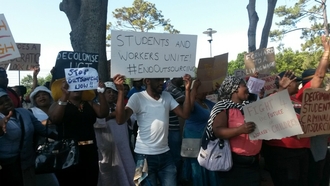



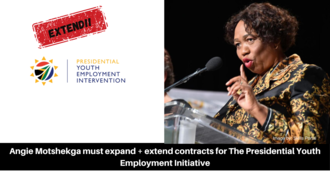
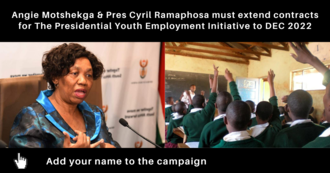

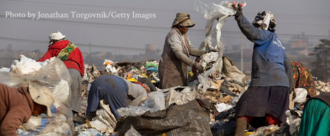.png)
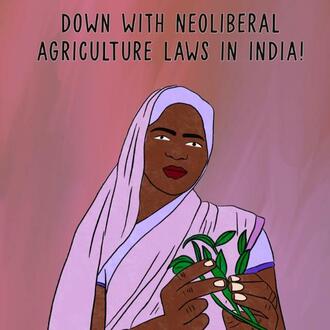.jpg)
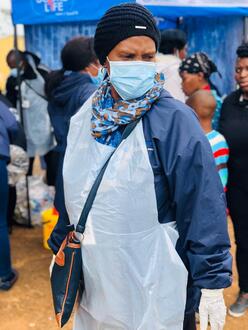.jpeg)

